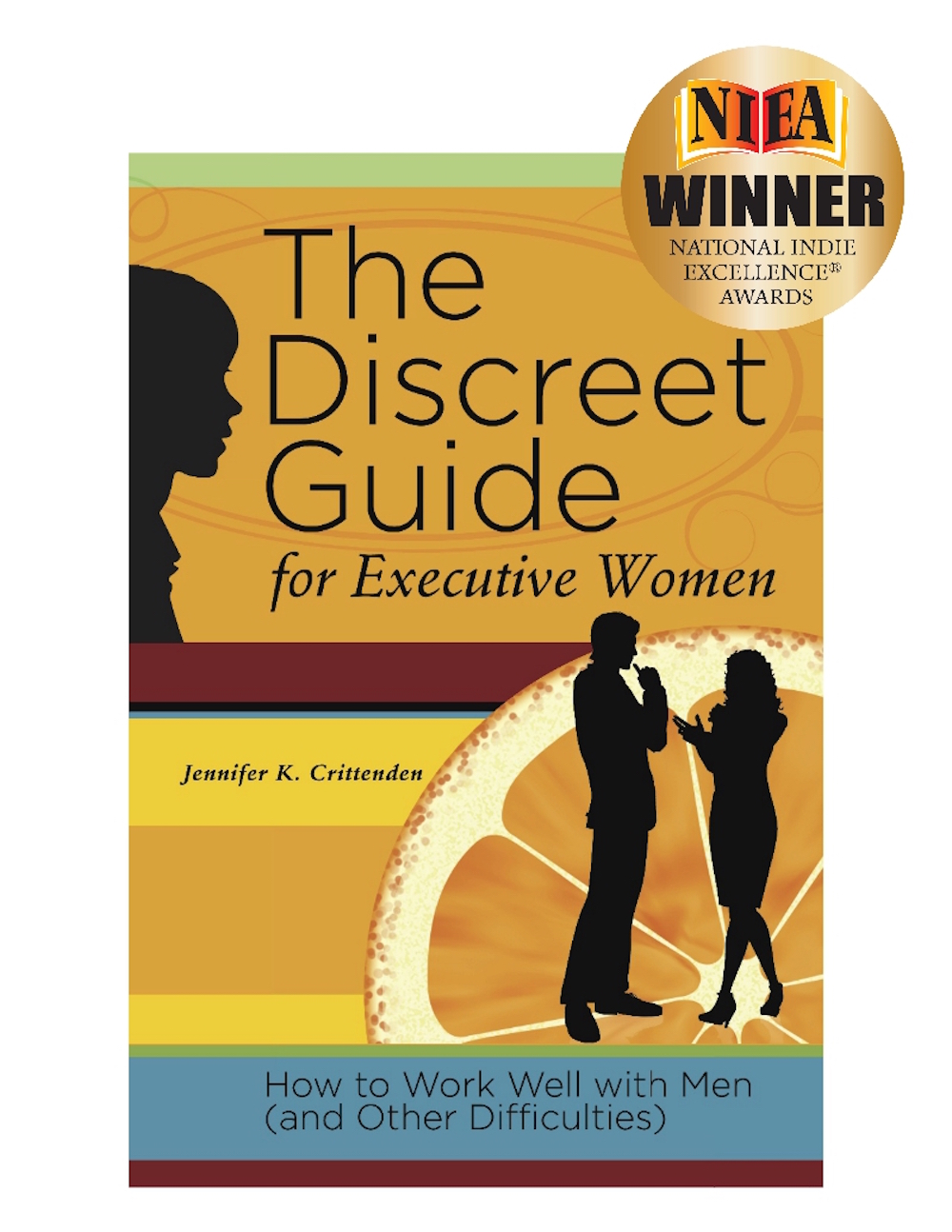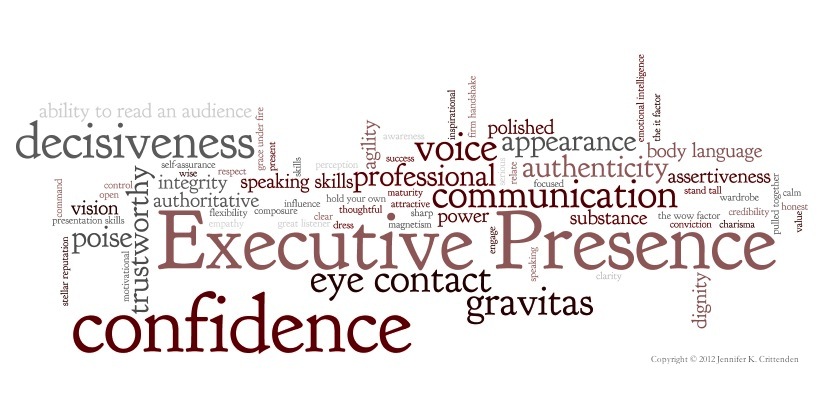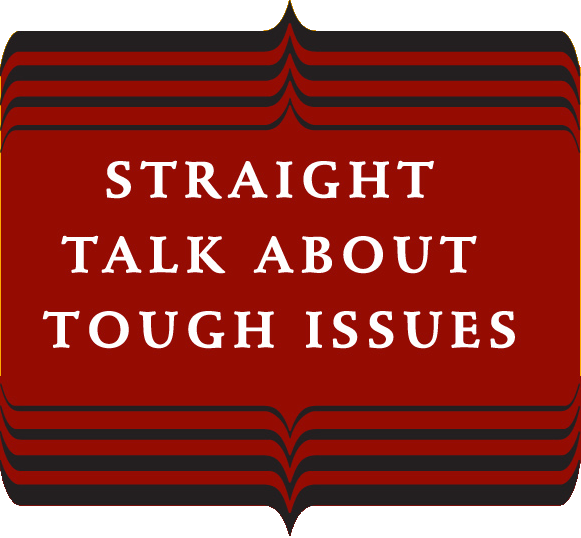Job hunting poses unusual challenges that you don’t confront when you have regular employment and are engaged in the workplace. Being skillful at being interviewed is not part of a normal job, but I would argue that an interview does provide an ideal opportunity for you to demonstrate exceptional presence and stand out from other candidates. Learning from the experience and becoming more self-aware will also add to your presence once you have found employment. An enhanced presence encourages others to feel more favorable to you. Who couldn’t use a little more of that?
This is Part Three of a three-part article. The first part was Preparing for the Interview, and the second part was Speaking and Listening while Interviewing. The person asking questions is a hypothetical job seeker and is a composite of several people I have met lately. They have asked some good questions about difficult issues that face candidates today.
Part Three: Tough Situations
There is speculation in the press that the company is in financial trouble. I can’t really bring that up, can I?
Don’t be afraid to ask sensitive questions. Here is a chance to demonstrate your delicate touch but willingness to address issues others might avoid. Being courageous signals that you are a confident person, a corner stone of a strong professional presence. Sometimes a lead-in can help broach a topic that could be embarrassing to the company. You could say, for example, “I hope you don’t mind my bringing up a sensitive issue, but given that [the CEO has resigned, the company is just been sued, a product is being recalled], could you tell me . . .”
Recognize that you will get the party line in response, but you can also gain important information in an exchange like that. You may conclude that you don’t want to work there, for instance. If the response is weak or irrational, don’t argue, but do take note. Sometimes it’s helpful to bring the topic up again with a different interviewer (with different wording, so it doesn’t sound exactly like the same question) to flush out the situation. The takeaway is that you shouldn’t avoid these issues. You want to show off that you have done some research and that you are tough enough to ask good questions–politely, of course!
What can I do if I think the interviewer is avoiding asking ME some tough questions?
Try to put yourself in the shoes of your interviewers. What information would help them make a decision about hiring you? If they haven’t asked some questions that you think they should, bring it up. Again, a lead-in can help you. You could say, “You have very politely not brought up what I’ve been doing the past 12 months, but I wanted to talk about that because [I’ve learned some new skills during that time, I’ve changed my job search strategy, I’ve taken some time off and now am re-invigorated to start back full-time, . . . ]. You want to reflect a can-do attitude, an intelligent and inquiring mind, and someone who can roll with the punches. Those attributes contribute to a settled but energetic presence.
How do I exert my presence on my potential subordinates?
If you are interviewing with someone who would report to you, make sure that you bring up what kind of boss you are. They may not ask, or they may suddenly demand it of you, in a bristling fashion, with folded arms. Don’t get defensive if they bring it up–it’s an important question. If they don’t ask, take the initiative. A good lead-in would be “You might be wondering what kind of approach I take to managing people. Do you mind if I take a minute to talk about that?” That lead-in doesn’t presume to know what the subordinate wants to ask (but doesn’t have the nerve to–an implied insult), but honestly points out that it might be of interest and offers to talk about it. It is helpful to put yourself in the other’s shoes and think about how you would like to be treated.
Aren’t my interviews with high-level senior management or the board the most important?
Not necessarily, When you are interviewing with leaders who would be very senior to you, think again about what they need from you. They don’t need detailed descriptions of your technical skills; they need to be convinced that you will fit in, that you won’t be a disruptive presence, that you will be a team player and that you will play your position. Mostly, they are watching for liability or that you might become a problem, so don’t raise any flags.
How do I interrupt interviewers who do all the talking?
This can be a real problem with senior leadership. You will have to intervene if they begin talking non-stop without letting you get a word in edgewise. Executives sometimes do this because they are more concerned about impressing you than they are about learning about you (or they just like to talk). It’s a mistake, but don’t hold it too much against them–they’re human too. Try to make it a conversation instead of a monologue. Try to insert yourself in the river of words by getting him or her to engage with you. You could hold up your hand and say with a smile and considerable energy, “Hey, now you’ve got my attention! I wasn’t aware that the company was [thinking about that initiative, expanding in that area, undertaking a change in culture, . . . ]. Could I ask [how you plan to deal with . . . , how you are thinking about . . . , what your timeline is, . . . ]?
It’s great that you’re gathering information, but you need to make your presence felt and the executive needs to learn something about you too. Here is a chance to demonstrate your knowledge, intellect, and openness by asking honest questions and offering useful information. I wouldn’t suddenly break in with an implied, ‘Yeah, yeah, but here’s how that applies to me’ and start talking about your qualities. It’s rude to brag until you’re invited, and it’s more effective and subtle to contribute to the discussion in a way that shows you could add value. In effect, you want to model the same behaviors you would if you were an employee. You want the executive to think, “I could work with this person! This feels comfortable.” If he or she learns something from you, all the better. Try to give away lots of information for free during the interview. It will make you memorable and add credibility to your expertise. Of course, it won’t hurt to hint that there’s more where that came from.
What if I get asked a completely whacky question?
I have heard about and read some interview questions that were stunningly ignorant and inappropriate. Many people out there have not been trained how to interview, and their instincts are not good, leading them to ask truly bizarre interview questions. I once got asked who my favorite country artist was. I tried to respond honestly without reacting negatively (this was Nashville, after all), but making the whole topic sound pretty light-hearted. My interviewer announced that she could tell a lot about people by whom they picked! Good grief. Sometimes you just have to suck it up and go with the flow.
In my last interview, one guy was really rude. What should I have done?
There is some shockingly bad behavior on the part of employers. Some have become lazy and mean during this recession. I’ve heard of companies putting candidates through demeaning interviews, treating them very poorly, and never responding afterward. Although this is provocative, you will have to take the high road here. These company representatives may be immature and haven’t thought about how to behave when it’s an employee’s market, instead of the other way around. Try to stay chill and non-reactive. You don’t want to pass up a good job because of some nitwit interviewer.
I’m scared they are going to ask me one of those brain-teaser questions?
Staying unflappable will speak volumes about your presence. Answering questions honestly will convey your sincere attempt to have a positive outcome to the interview. So, if the interviewer starts in with some foolish “Why are man-holes round?” or “How many gas stations are there in the U.S?” play along but try to keep it brief.
With the market-sizing questions or problem-solving quandaries, feel free to guess and engage your mind. You can talk out loud as you’re trying to solve the problem to show that and how your brain works. A surprising response (“As many as the market will bear”) would be a fine way to go too. But the interviewer has loaded the stakes against you, so you don’t have to make yourself look dumb.
If it’s really an irrelevant question, I think it’s okay to say, “I don’t know. Why?” Then you can express mild interest in the answer, but not get too drawn into a discussion that has nothing to do with the job, the company, or you. Stay polite and be sure not to show any hostility, but try to move the discussion to more important things. Do avoid sounding snarky (“I don’t know what that has to do with anything,”) or a smart-alecky comeback (“I don’t know, but I’m gonna guess you do”). It wouldn’t be out of place to chuckle about it also and show that you’re a good sport.
It’s reasonable to look up a few of these silly questions and learn the ‘correct’ answer, but I wouldn’t devote a lot of time to it. It’s unfortunate that a hair-brained approach to interviewing has become popular. Eventually someone will publish an article that suggests that we focus interview questions on topics that are actually relevant to the job, and it will be considered a major management breakthrough. Until then, you just have to do the best you can.
Conclusion:
When you’re out of work, it’s hard to remember that it presents a learning opportunity and a chance to make a great impression. But we do get better at interviewing and job hunting the more we do it. If you can maintain an upbeat, curious attitude toward the process, you will make interesting observations, and your presence will grow and flourish. As you get ‘bigger,’ your influence on others increases, you have more impact on and control over your circumstances, and you are better able to handle subsequent interviews.
During this recession, creating exceptional presence during the interviewing process is a good way to differentiate yourself from other candidates. Instead of the usual mundane approach to a job interview, think of it as a chance to stand out and wow someone, not by overwhelming them, but through courtesy, humility, resourcefulness, maturity, and wisdom. An interview is a terrific opportunity to have a fairly brief but extremely positive interaction. If you handle it with finesse, you will be remembered. If you fulfill the other job requirements, you will be hired. May you find a wonderful, satisfying position soon.
Please feel free to leave a comment if you have other thoughts for job seekers.
Copyright © 2013 Jennifer K. Crittenden
Sign up for an individualized program to enhance your own Exceptional Presence as a Job Seeker:
The program includes review of Resume, LinkedIn Profile, head shot and Elevator Pitch, tactical developmental exercises in networking and interviewing, and two 90-minute video-Skype or in-person sessions, including audio and video analysis of self.
Each 90-minute unit is priced at $350. It includes a self-assessment, an introductory “get-to-know-you” session, a copy of The Discreet Guide for Executive Women (if desired), and a diploma upon completion.
Group discounts are available.
Feel free to write to jennifer (at) discreetguide (dot) com with questions and ideas. I’d be delighted to hear from you and see if I can help.
More information here.





 Ten 90-minute individualized sessions. Private and confidential.
Ten 90-minute individualized sessions. Private and confidential.


Izetta
/ December 6, 2018Normally I do not learn post on blogs, but I wish to say that this write-up
very pressured me to check out and do so! Your writing style has been surprised me.
Thank you, very great post.